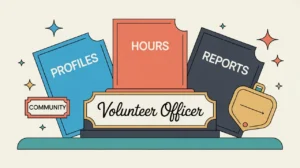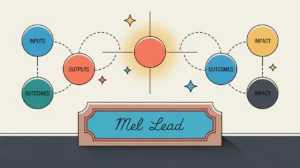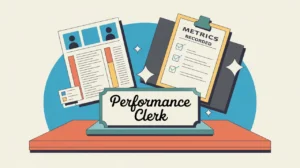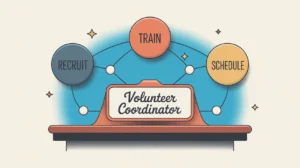What Does the Development Officer Role Involve?
A development officer is responsible for managing donor relationships, supporting fundraising strategies, and securing financial resources to sustain the organization’s work. This involves cultivating and stewarding donors, preparing grant proposals and reports, coordinating fundraising campaigns, and contributing to prospect research. The role typically sits within the development or advancement function and works closely with program, finance, and communications teams. In both nonprofits and social enterprises, development officers play a key role in bridging organizational priorities with donor interests to generate sustainable funding.
At What Level does this Role Operate?
Mid Level: This role typically reports to a development manager or development lead and may supervise assistants or associates. It involves a mix of relationship management, strategic fundraising execution, and operational responsibilities.
Relative Employability: Development officer roles are widely available across nonprofits, social enterprises, educational institutions, foundations, and philanthropic organizations. Professionals with strong writing, communication, and relationship-building skills are consistently in demand.
Relative Pay Scale: Within nonprofits and social enterprises, development officer roles sit in the mid to upper mid pay bands, reflecting their role in securing revenue and managing important donor relationships.
What are the Key Responsibilities and Activities?
- Manage a portfolio of donors, foundations, corporations, or institutional funders
- Cultivate and steward donor relationships through regular communication, meetings, and updates
- Prepare grant proposals, concept notes, and donor reports aligned with organizational priorities
- Coordinate fundraising campaigns and events in collaboration with internal teams
- Conduct prospect research to identify and assess potential new funding opportunities
- Track donor information, deadlines, and communications using CRM systems and databases
- Collaborate with program and finance teams to develop budgets, gather program information, and ensure accurate reporting
- Contribute to the development and refinement of fundraising strategies
What Core Competencies and Qualifications are Needed?
Required Qualifications and Experience
The following reflect common qualifications and experience expected for this role, while recognizing that pathways may vary by context, organization, and region.
- Relevant academic background in communications, business, nonprofit management, social sciences, or a related field, or equivalent professional experience
- Demonstrated experience in fundraising, development, or partnership management
- Strong writing skills for proposals and donor communications
- Ability to build and maintain relationships with diverse stakeholders
- Familiarity with CRM systems or fundraising databases for donor tracking and reporting
Key Competencies
- Donor relationship cultivation and stewardship
- Proposal writing and fundraising strategy execution
- Research and analytical skills for prospecting
- Communication and presentation abilities
- Organizational and time management skills
- Cross-team collaboration and coordination
How are AI and Automation Shaping this Role?
An AI-native development officer will look to AI and automation to improve prospect research, donor communications, and proposal development. They can use AI tools to analyze donor trends, generate customized outreach materials, summarize program data, and track deadlines more efficiently. Automation can support reporting, CRM updates, and stewardship workflows, enabling officers to focus more on building relationships and securing funds. By integrating AI thoughtfully, development officers can increase the effectiveness and scalability of their fundraising efforts.
What Career Pathways and Transferable Skills are Associated with this Role?
Development officer roles can lead to positions such as development manager, development lead, or director of development. The skills developed in relationship management, strategic fundraising, proposal development, and donor stewardship are highly transferable across nonprofits, social enterprises, foundations, educational institutions, and corporate social responsibility teams. Professionals in this role are well positioned to advance into leadership roles that shape organizational resource strategies.







